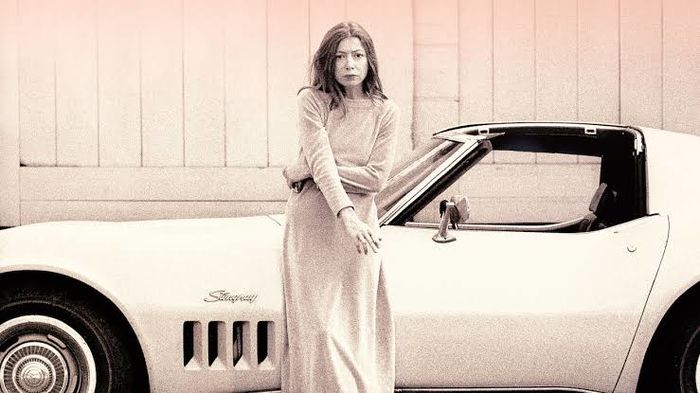Uncovering The Truffle Hunters
In his final column, Jonty Taylor explores the endearing documentary film The Truffle Hunters.
The Truffle Hunters is, quite simply, a documentary about hunting truffles — the variously sized, invariably expensive, bulb-like delicacy that finds its place of rest atop the food of the rich and famous. This subject, despite its seemingly narrow scope, offers so much to the viewer. The truffle, and its hunters, are the locus for a web of happenings that make this film so rich in intrigue.
It’s ridiculous how many reviewers don’t acknowledge this. One, Peter Bradshaw, of the Guardian, thinks it’s mostly about dogs. It’s not. Another, Ian Freer, casually mentions it lacks in “narrative drive”, who cares? And a certain Simon Abrams calls it “generally patronising”, and laments its “above-it-all perspective”. Pull the other one, Simon. I loved almost everything about the film. I don’t have a bad word to say about its narrative drive — partly because I’m not one hundred percent sure what that is — but also partly because the only driver of narrative in a film so full of interest and little stories is, and can only be, the viewer.
The story of the documentary really is whatever you want to make of it. There is, of course, the version you might read on a Wikipedia-esque summary, or cinema blurb. It would probably go a little bit like this: A sensitive insight into the world of the hunters of the Alba truffle in Northern Italy, a world that directors Gregory Kershaw and Michael Dweck present in all its beauty and reality. But this doesn’t even begin to unearth the endless list of stories and intrigue embezzled in this world. There’s love, death, deceit, poison, red wine, tomatoes, old age, and a window escape. I’m serious, there’s so much to enjoy, to watch, to talk about in The Truffle Hunters. It won’t disappoint.
That said, my reaction to this film wasn’t all positive — it turned out that the sum of all the things I loved so much about watching it was a perfect recipe for a rapid onset existential crisis. I can’t deny that the little stories I found myself drawn to throughout the film left me with a distinct feeling of listlessness. In the film itself there was plenty of life and purpose, buckets of them both, but this was exactly the problem.
“The little stories I found myself drawn to throughout the film left me with a distinct feeling of listlessness.”
There’s no existence more purposeful than that of Carlo, an eighty year old truffle hunter who, on being ordered not to hunt for the fungus at night by his wife, crashes out of the kitchen window as she sleeps — nothing can come in the way of his relationship with the bulbous fungus. It would be safe to say that walking out of the cinema having watched so many funny and heart-warming moments like this left me at a loss.
The way of life that I had just seen play out on the screen appeared unquestionably enviable. It wasn’t so much that I envied the romantic image of an Italian village amongst rolling hills and cypress trees — although I did look up those 1€ houses that Italy’s mayors are selling off across the country. It was more that I envied the effect of the truffle, its sacred traditions and history, and the community that manifests around it, to be able to give so much meaning to everything that it touched.
This only became more apparent as the film progressed and began to show that the meaningfulness of the truffling way of life was dying off. For one, any connection to the world at large eroded the sanctity of the delicacy and the practice of hunting it; the incessant buying and selling of truffles on various international markets, the nefarious deals (some front-room, many backroom), the Al Capone-type man who, having ruthlessly bartered with truffle hunters elsewhere in the film, sits with a napkin in his collar in a pristine restaurant slurping up a fried egg covered in slices of truffle. All of this was unfailingly uncomfortable to watch as it slowly enveloped the once happily pure pursuit of truffle hunting.
The real truffle hunters, the ones who existed at arm’s length from the marketability of their craft, were set up by the directors of this film to be the enviable ones. Unquestionably, they convinced me. The old men and their dogs appeared to have achieved a happiness that only comes from being so perfectly at home. It just so happens that their home is encompassed by the tricks, trials and trivialities of hunting for a special truffle.
I am now of the opinion that everyone deserves their own truffle hunt and that, more importantly for my purpose in writing this article, only a brilliant documentary can leave you with this kind of conclusion. The Truffle Hunters is, to me, a brilliant documentary.
 Features / Should I stay or should I go? Cambridge students and alumni reflect on how their memories stay with them15 December 2025
Features / Should I stay or should I go? Cambridge students and alumni reflect on how their memories stay with them15 December 2025 News / Cambridge study finds students learn better with notes than AI13 December 2025
News / Cambridge study finds students learn better with notes than AI13 December 2025 News / Uni Scout and Guide Club affirms trans inclusion 12 December 2025
News / Uni Scout and Guide Club affirms trans inclusion 12 December 2025 Comment / The magic of an eight-week term15 December 2025
Comment / The magic of an eight-week term15 December 2025 News / News In Brief: Michaelmas marriages, monogamous mammals, and messaging manipulation15 December 2025
News / News In Brief: Michaelmas marriages, monogamous mammals, and messaging manipulation15 December 2025








